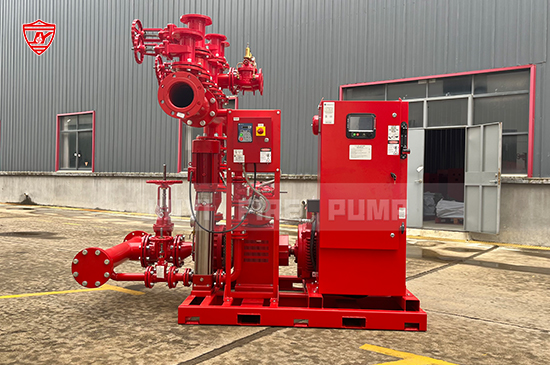In the world of fire protection, system reliability is everything. That’s why separating fire pump rooms from other utility spaces isn’t just a suggestion—it’s a critical requirement that protects lives, property, and the performance of your fire protection system.

Fire pump separation is mandated by NFPA 20, the standard governing fire pump installations. According to Section 4.12.1, fire pump rooms must be enclosed and separated from other occupancies to ensure fire protection readiness at all times. This isolation helps prevent damage or interference from unrelated building systems.
Placing fire pumps alongside equipment like boilers, HVAC systems, or electrical panels exposes them to risks like heat, vibration, and leaks. These can affect the pump's functionality or cause premature failure. A dedicated room minimizes these threats and ensures the fire pump is always ready in an emergency.
In a fire event, access to the fire pump must be quick and unobstructed. If it's buried among other utilities, emergency responders may lose valuable time navigating obstacles. A separate room guarantees clear, dedicated access.
Fire pumps are the heart of your fire suppression system. Cross-contamination with utility systems can compromise water pressure or even damage the pump. Isolated rooms preserve water quality, reduce contamination risks, and improve overall system reliability.
NFPA 20 requires the fire pump room to have a minimum 2-hour fire resistance rating, which can be difficult to achieve when shared with other utilities. Dedicated rooms allow for the proper construction and fireproofing necessary to protect critical fire protection equipment.
Fire pump inspections, testing, and maintenance are more efficient when the system is not entangled with other utilities. A separate room allows technicians to work safely, without shutting down unrelated systems or navigating confined spaces.
Separating your fire pump from other utility rooms isn’t just about code compliance—it’s about safeguarding a system that can save lives. By isolating fire pumps, you enhance system reliability, ease emergency access, and protect vital equipment from preventable damage.